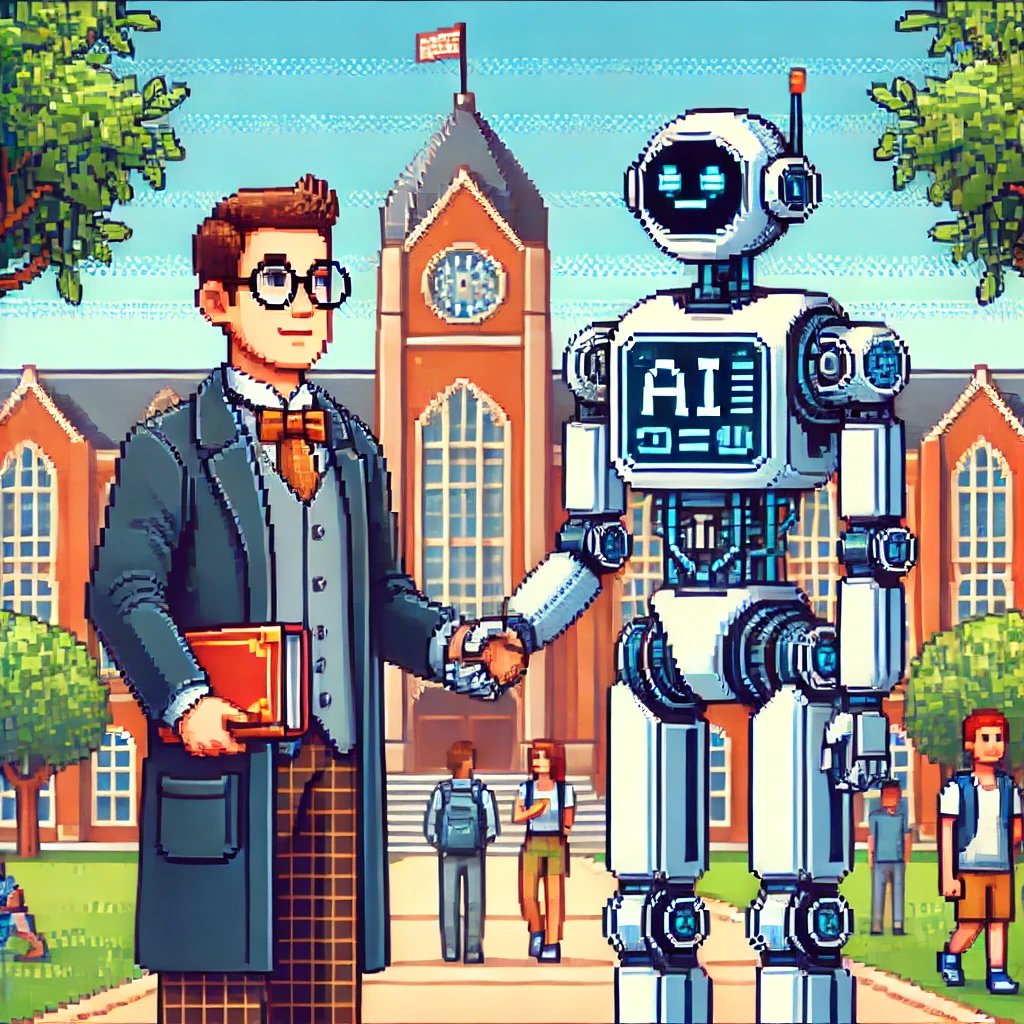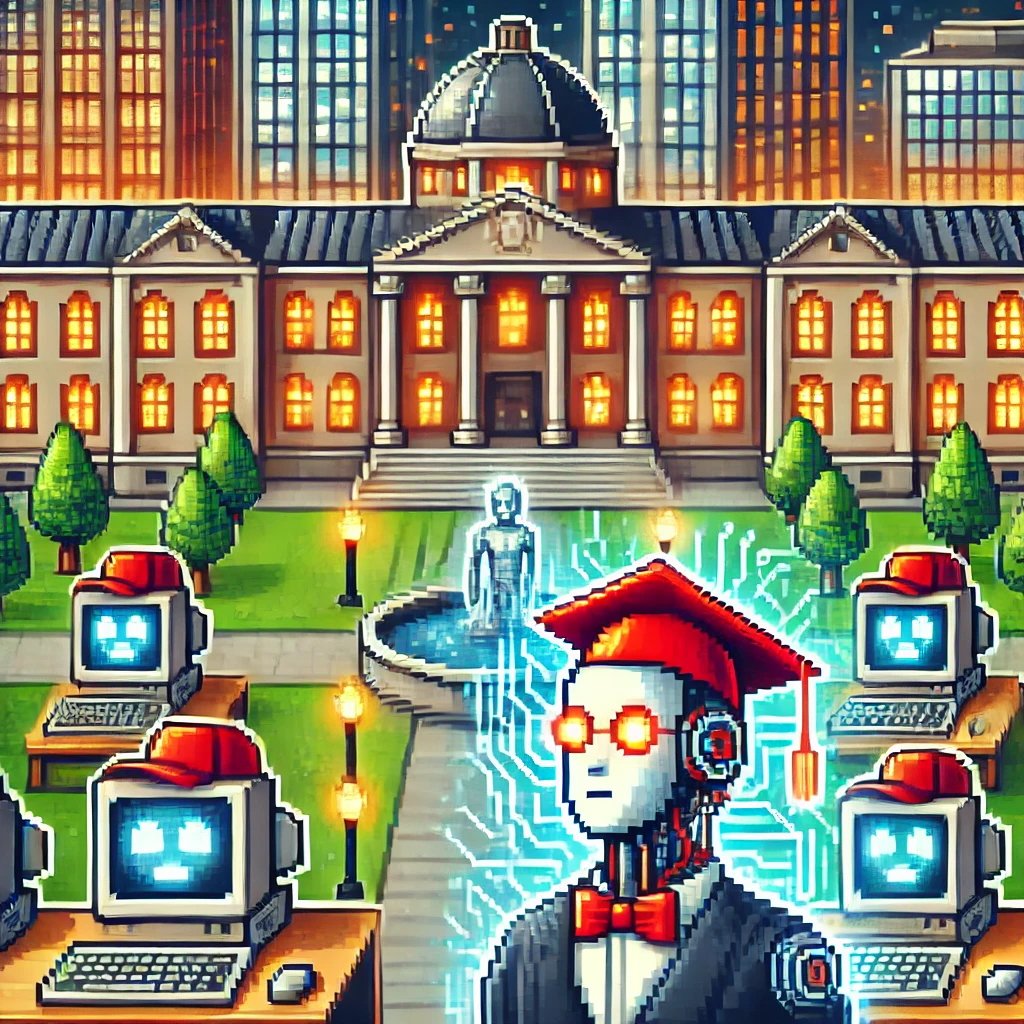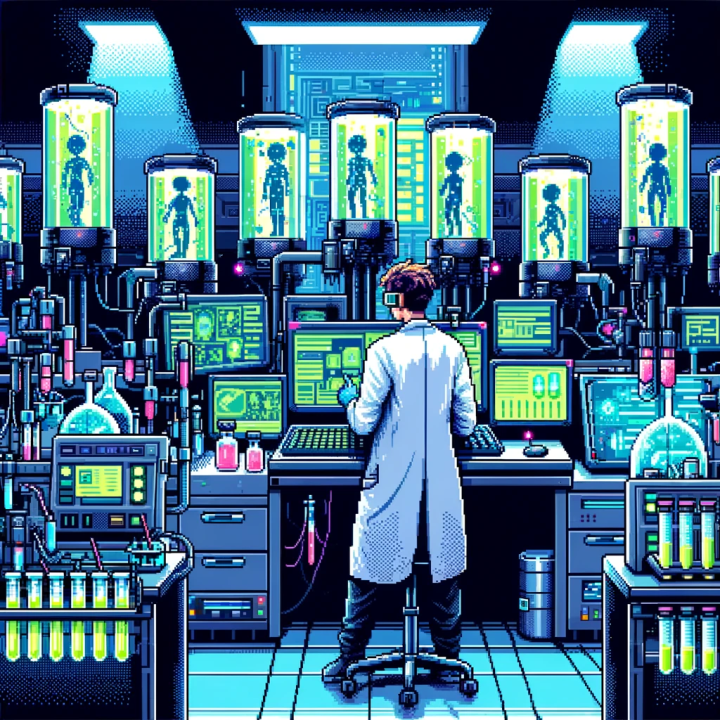Will Artificial General Intelligence Replace Me?
We have been having conversations with each other and with colleagues for the last few months about what Artificial General Intelligence will mean for higher education. It is opaque at best, but we at least want to lay out some pieces to initiate the conversation.

The Assistant for the Rest of Us
There is a truth about the prolific output of professors at research universities, called R1 schools, that is unclear to those on the outside. Professors at these universities routinely publish books and countless journal articles, deliver class lectures to hundreds of students, and grade student work all by leveraging the labor of graduate students in their role as Research Assistants (RAs) and Teaching Assistants (TA). For professors like me who teach at schools where RAs and TAs are rare, generative AI can level the playing field and make our work easier, maybe even better. This post is about my experience leveraging these tools in similar ways as my R1 professors. I also want to talk about the reluctance of faculty to admit to using these tools in their professional work.
Budgets, AI, Government: Three Challenges for Higher Ed
Higher education is facing three distinct and world-changing challenges. Budgets/enrollment, Artificial Intelligence, and changes in federal policy all exist as largely separate issues. The confluence of these at one time and our lack of coherent reaction does not position us for success, but there is hope.

AI’s gone MAGA
We are back in Inside Higher Ed arguing that generative AI is being coded as political. We argue that treating AI as another front in the culture war is a mistake. Read it here.
Thoughts on the First AI-Powered University
Billing it as an historical first, the Office of the Chancellor of the California State University system announced a partnership with OpenAI to bring ChatGPT to every student, staff, and professor at the 23 campuses. This new partnership is poised to alter the course of this disruption in ways foreseen but opening up a slew of new issues and opportunities. In this post, we will give an overview of this partnership, what it changes and what it does not, and provide some initial thoughts on some likely implications.
Your AI Policy IS Already Obsolete
Zach and I were published in Inside Higher Education writing “Our argument is that the integration of AI technology into existing platforms has rendered these frameworks obsolete.” Read the article.

Video Cloning for Education: Not That Great
There just don’t seem to be that many cases where viewing a human torso is critical to student learning.

Tenure. Promotion. AI.
The same anxieties you may confront when thinking about the ethics of a student using AI to outline a paper or check their code can also be turned around onto us.
Summer break, see ya
It’s summer break for faculty and we’ll have less posts until we’re back in late August. Enjoy the sun or winter if you’re in the far southern hemisphere. NOTE: picture is exactly what we look like.

AI and Assessment: The Missing Partner
Nik Janos and I wrote a piece for Inside Higher Ed about assessment and AI.We want to call attention to the necessity of accreditors to step up and lead.

Voice cloning for education: It is exactly like this picture
This is part of a new series within our blog wherein we will be exploring the educational applications of different pieces of Artificial Intelligence technology.

Reflecting on a Year of Generative AI: Nailed it!
Having been thinking about, writing, and speaking publicly about generative AI for one year, we wanted to look back at our first post called “Responses to ChatGPT”, which we published on January 26, 2023. What did we get right? What do we know now that we didn’t know then? And what might the next year of AI in higher education look like?
What did we get right? We’re both humble people but in this case we’ll say “nailed it.”
What chess can teach us about education and AI
The computer program Deep Blue beat chess world champion Gary Kasparov in 1997. For 25+ years computers have been better than the best humans at chess. Despite this there are some fascinating trends with humans and the game.
Intens(ive) Reflections
My favorite part about work like this is learning from the participants so I wanted to share a couple of these lessons with a broader audience.
AI Retrofit: Asynchronous and Free For Everyone
The course guides faculty in a step-by-step process of redesigning their existing courses in a world of generative Artificial Intelligence.
Disruption within a disruption
November 17, the Friday before Thanksgiving, a shock came out of OpenAI, the company behind ChatGPT. The board of directors had fired Sam Altman CEO and public face of the company. What? Jaw drop for sure. This post is not about the craptastic mismanagement of the company that produces ChatGPT and DALL-E, which have basically become the Kleanex of generative AI products. Rather I take this whole episode as a warning, as a disruption within a disruption.
Impact of AI in the classroom on Morning Show- Newstalk 93.9 KPAY (radio)
I was on the Morning Show - Newstalk with Scott Michaels and Mike Baca taking about the impact of ChatGPT on higher education and how professors and administrators are approaching generative AI more broadly. Have a listen on the page.
Librarians use one weird trick to destroy ChatGPT
The whole experience was illuminating for me. It made me appreciate the expertise and value of our excellent librarians at the University even more. It also made me think about the current limitations of the technology.
Chico State professors navigate artificial intelligence in education
Zach and I were interviewed by Muna Sadek from KRCR Chanel 7 in Chico about ChatGPT and its impacts on higher education.
Professors Nik Janos and Zach Justus held a ChatGPT workshop for students Friday. They say their goal is to hear insights from students on how the technology has been changing their approach to education. They one of the most common questions they are asked is whether use of the website makes a student guilty of cheating.

AI. Education. Equity.
The impact of generative artificial intelligence on our goals on diversity, equity, and inclusion remains undertheorized. The goal of this post is to collect what we know so far and theorize about where we might be headed.